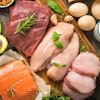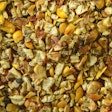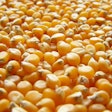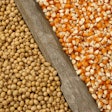North Brabant, the Netherlands, has become the base of the International Insect Center (IIC), an international network that promotes the use of insects and insect larvae as a protein-rich resource. The network is open to anyone who wants to promote the large-scale production and application of insects in the feed, food and pharmacy industry. More than 15 companies, universities and government agencies have already joined.
The insect center will primarily advance the use of insects by developing joint projects and sponsoring international legislation and regulation. The center will also work on communication and branding, finance and funding, research coordination and knowledge development.
The insect center’s founding members come from across the Netherlands. They include insect producer Vivara, animal feed producer Coppens and New Generation Nutrition. Wageningen University and the HAS University of Applied Sciences are among the participating universities.
Insects – and especially insect larvae – provide a potential protein alternative for the feed and food industry, the groups says. In a report by United Nation’s Food and Agricultural Organization (FAO), “Edible Insects: Future Prospects to Feed,” FAO called for the creation of facilities that allow for broader and large scale application of insects and insect larvae for protein and food sources.
The center supports the construction of a completely new insect supply chain. In particular, the group is focused on large-scale production. The group says it envisions eight large production facilities with a turnover of €420 million (US$551.4 billion) within seven years.
The Brabant Development Agency has supported the development of business and activity plans. The insect center has applied for financial support from the Five Star North Brabant, an organization of entrepreneurs, educational institutions, government and others in the North Brabant region, and the Board of Agriculture Innovation.
“The application of insects as a solution for the world’s food issues deserves every attention. Besides that, it offers great chances for innovative Brabant. As a joint effort of all involved, IIC must be able to attain an international leading position for Brabant in this field,” said Bert Pauli, commissioner of economy and management in the North Brabant providence.
The center says it will add to Brabant’s ambition for a biologically based, circular economy. Producers and processors of edible insects have already established a presence in North Brabrant and in the northeast of the providence. The center supports the intention of Brabant to have a more “bi” economy. Organic waste streams, like food, vegetables and fruit leftovers, can be used as a feed source for insects and add to the cycle.
Worldwide, more than 1,900 insect species of insects are edible. Of these, 60 species are produced in the Netherlands. The center says the larvae of the black soldier fly, the housefly and the mealworm are suitable for use in large scale organic waste streams and large scale production of proteins, and therefore, are suitable for the feed and food industry and pharmaceutical applications.













